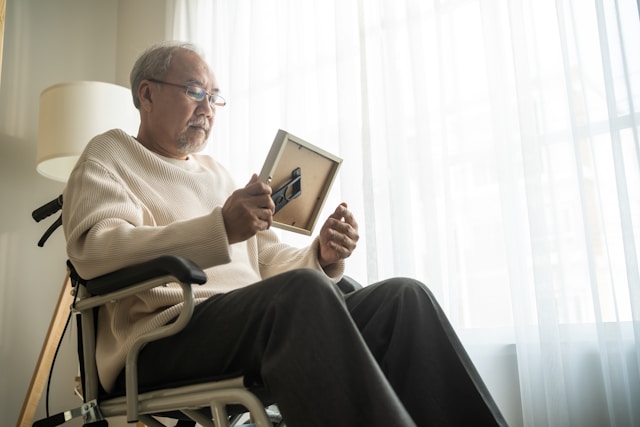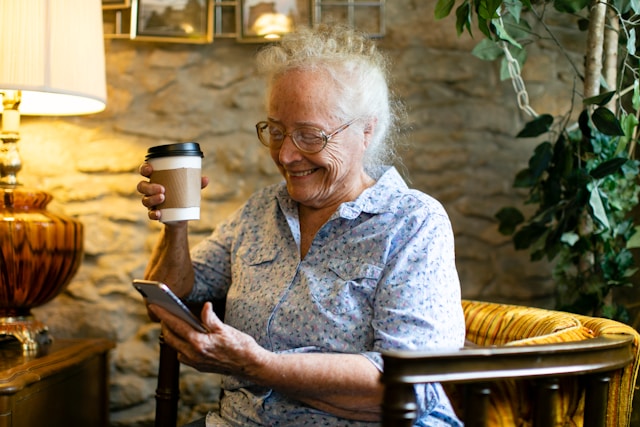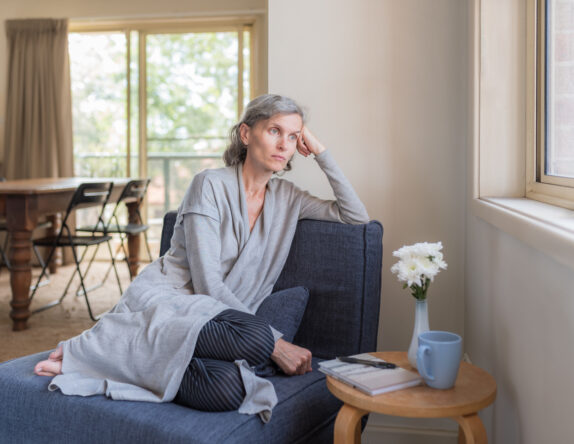Ageing comes with a lot of changes — some that everyone expects, some that catch people completely off guard.

One of the hardest but least talked about has to be loneliness. It seeps into your life slowly thanks to life and social changes, not to mention that increasing sense of feeling invisible in a world that seems to be moving on without you. While society often focuses on the physical aspects of ageing, the emotional toll can be just as challenging, and the loneliness of ageing deserves more attention.
1. Friendships naturally fade over time.

Life pulls people in different directions, and as you age, maintaining friendships becomes harder. Work, family commitments, and even physical distance can make it way too easy to drift apart from people who once felt like constants. Unlike in your younger years, when you could easily make new friends at school, uni, or work, later in life, opportunities for social connection shrink. Many people end up feeling increasingly isolated without even realising it’s happening until one day, they look around and notice how small their circle has become.
2. Losing loved ones becomes more common.

One of the harshest realities of ageing is that the longer you live, the more people you lose. Friends, partners, family members — people who were always there start disappearing, and the gaps they leave behind are hard to fill. Grief adds a new layer to loneliness. It’s not just missing someone; it’s feeling like your world is getting smaller with every loss. And while people rally around for a while, life moves on for them, while you’re still adjusting to a new, emptier reality.
3. Your role in life shifts.

For decades, people build their identity around their careers, families, and responsibilities. Then, suddenly, those things change — retirement, kids growing up, or shifting priorities leave many feeling like they’ve lost their purpose. When the things that once kept you busy fade away, it can feel like you’ve been left behind. People start questioning where they fit in the world now, and without a clear answer, loneliness quietly takes hold.
4. Mobility issues make socialising harder.

For many, getting older comes with physical limitations. It’s not that you don’t want to see friends or go out; it’s that things like pain, fatigue, or mobility struggles make it feel like more effort than it’s worth. What used to be a quick trip to the pub or a spontaneous coffee catch-up now requires planning, energy, and sometimes even help. When socialising becomes exhausting or uncomfortable, it’s easier to just stay home, and the more that happens, the lonelier it gets.
5. Social circles shrink after retirement.

For people who spent most of their lives working, retirement can be a huge adjustment. Without daily interactions with colleagues, the social structure that once filled your days is suddenly gone. Work isn’t just about the job; it’s about the casual conversations, shared lunches, and sense of belonging. When that disappears overnight, many people struggle to find new ways to connect, making loneliness a harsh reality.
6. Younger generations don’t always understand.

It’s easy to feel disconnected when younger people don’t seem to relate to what you’re going through. They’re busy with their own lives, moving forward at a pace that can make older people feel invisible or left behind. While they mean well, there’s often a lack of real understanding about how isolating ageing can be. A quick visit or a phone call helps, but it doesn’t always fill the deeper need for meaningful companionship.
7. Technology has changed how people connect.

For better or worse, social interactions have moved online. While this is great for those who are tech-savvy, many older people find themselves left out, struggling to keep up with a world that now revolves around group chats, video calls, and social media. Feeling excluded from digital spaces only deepens loneliness. Even when family members mean to stay connected, if most of their interactions happen online, those who aren’t part of that world can feel completely cut off.
8. Asking for company can feel embarrassing.

Many older people desperately want more social interaction but don’t want to feel like a burden. They worry that reaching out will make them seem needy or annoying, so instead of asking, they suffer in silence. But loneliness isn’t about being dramatic — it’s a real issue. Admitting you feel isolated shouldn’t come with shame, yet so many people avoid saying anything, hoping someone will just notice, which often doesn’t happen.
9. Romantic relationships change or disappear altogether.

For those who spent decades in a relationship, ageing can bring unexpected loneliness, whether due to divorce, losing a partner, or simply growing apart over time. A relationship that once felt stable and permanent can change dramatically. For single people, dating later in life can feel intimidating or even impossible. And for those who do want companionship but aren’t looking for romance, finding deep, meaningful friendships in later years isn’t always easy.
10. The world moves too fast to keep up.

Everything — trends, slang, technology — moves at breakneck speed. For those who aren’t actively trying to stay in the loop, it’s easy to feel like the world is racing ahead while they’re stuck in place. When conversations feel unfamiliar and cultural shifts happen overnight, it can create a feeling of disconnect. That sense of not belonging anywhere anymore is one of the most isolating experiences of ageing.
11. Social spaces aren’t built for older adults.

While younger generations have plenty of ways to meet new people — work, clubs, social events — older adults often struggle to find spaces where they feel welcome. Many community activities feel outdated or unappealing, making it hard to engage. Finding the right kind of social interaction is key. Just because an activity exists doesn’t mean it’s enjoyable or accessible to everyone, which can leave many people feeling like their options are too limited.
12. There’s a real fear of becoming “the lonely old person.”

There’s a harsh stigma around loneliness, particularly for older adults. Many people see loneliness as a personal failing rather than a societal issue, making them hesitant to talk about it. The fear of being perceived as “that lonely person” can actually make isolation worse because instead of reaching out, people withdraw even more, trapped in a cycle they don’t know how to break.
13. Health issues make everything harder.

Even for those who want to be social, dealing with chronic pain, fatigue, or medical conditions can make it feel impossible. When just getting through the day takes effort, maintaining an active social life can feel like an unrealistic goal. And as health declines, reliance on carers or family members can create another layer of isolation, especially when independence starts slipping away.
14. No one really talks about it.

Loneliness in ageing is often treated like something that just happens, as if it’s inevitable and not worth addressing. But the truth is, it’s a huge issue that can seriously affect mental and physical health. Normalising conversations about loneliness could help more people feel comfortable opening up, leading to better social support and more meaningful connections. No one should feel forgotten just because they’re getting older.




